“Hydrocommon Cultures”: Ecocritical projects and essays on water
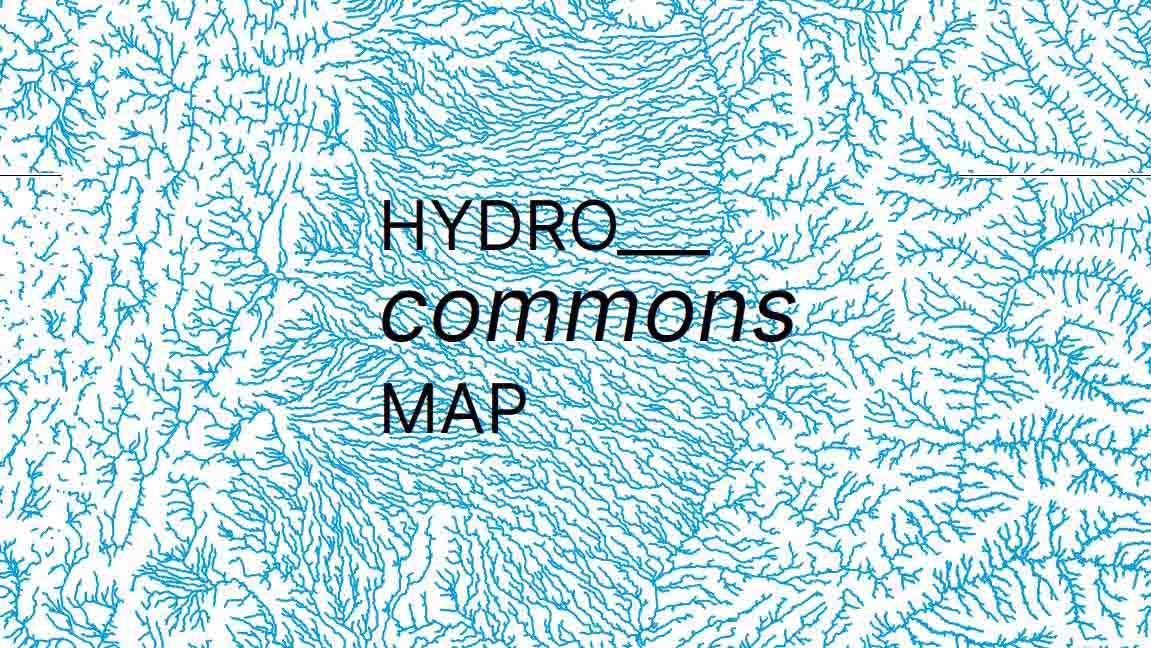
“Hydrocommon Cultures” gathers pedagogical, aesthetic, and ecological practices that respond to the contemporary hydrosphere with creative proposals to protect water bodies “as a place for life.”
© LA ESCUELA___
In May, the art platform LA ESCUELA___ is launching a new format: LA ESCUELA___ JOURNAL. The curated journal will be published once a year and will explore current ecological, social and cultural issues in Latin America at the interface of art and education. The first volume, edited by Lisa Blackmore and Alejandro Ponce de León, brings together original contributions on the hydrological challenges facing the continent’s waters.
Under the titel, “Hydrocommon Cultures: Art, pedagogy and care practices in the Americas”, the conversations and essays by more than twenty authors are proposals for an ecocritical thinking based on artistic practices, theoretical reflections and community responses to today’s water stress. They share a “concern for producing other ways of making, being, and relating to water, which break away from the paradigms that suffocate common waters”, according to the editors.
The first issue of LA ESCUELA___ JOURNAL also includes a cartography of Hydrocommons, developed in collaboration with the entre-ríos project. The maps locate various platforms and projects that take care of the continent’s waters. They show connections between the waters beyond the political and administrative borders of the nation states.
The publication aims to promote translocal dialog and collaboration on challenges on the continent and beyond, and to provide valuable resources for shared learning. Like all LA ESCUELA___ texts, educational and research contributions, this journal is free of charge and can be read online and downloaded from the LA ESCUELA___ website.
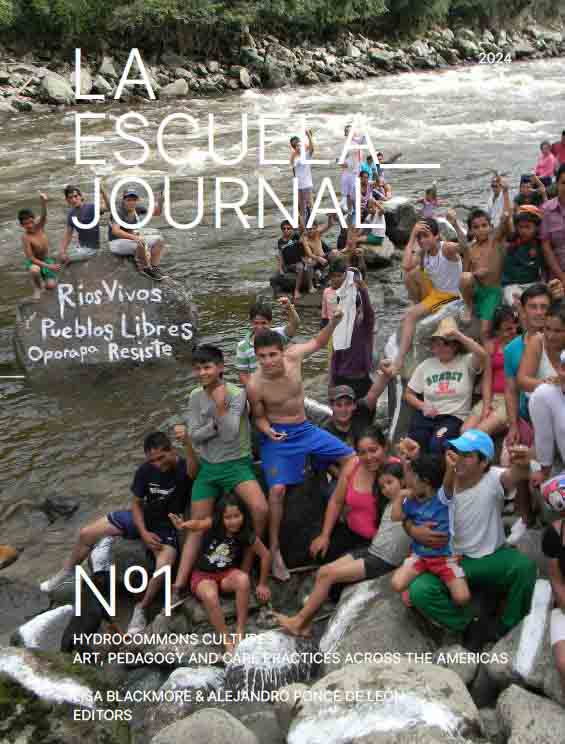
In its first issue, the publication LA ESCUELA___ JOURNAL deals with the topic of hydrocommons from various artistic research perspectives:
“We understand the hydrocommons as the emerging field of theories, practices, and actions that recognize water as the basic substrate of life and, in this capacity, it is a fundamental condition for more-than-human well-being ” explain Blackmore and Ponce de León.
Although it is an academic field, its relevance has led to fruitful connections and collaborations with art, pedagogy, and activism on a global scale. “Aesthetics is fundamental to the transition toward other water cultures, since it is a broad field for fermenting speculative sensibilities that invite us and urge us to rethink and reconnect with water.”
In this sense, the volume presents a variety of voices and text forms: From essays and poetry including non-linear texts and autoethnographies to artistic strategies stemming from fieldwork and scientific research.
The fact that the articles cover the entire American continent, from southern Chile to Canada, is an editorial gesture to emphasize the complexity, peculiarities, and diversity of the different cultures of the water community in America.
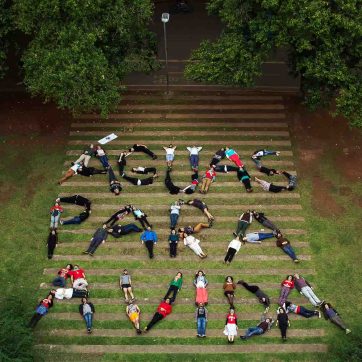
„Hydrocommon Cultures: Art, pedagogy and care practices in the Americas“ ist in vier Abschnitte gegliedert, die zur Reflexion über Mittel und Wege einladen, mit denen Hydrocommon Cultures in der Region aktiviert werden.
- Liquid Pedagogies the question of what and how we learn from water and how learning can facilitate change that translates into action.
- Artistic Practices for Living Waters brings together works ranging from expanded movement practices, performance and curatorial work that demonstrate how art transcends conventional methods and spaces.
- Ecocritical Panoramas in Amphibious Worlds explores the aesthetic mediation of rivers, oceans and (human) bodies of water and in water through contemporary art practices.
- Actions towards Hydrocommon Ecologies and Economies visualizes forms of water management and ecological regeneration that produce and enhance life in particular communities.
The volume concludes with a Map of Hydrocommons that presents a selection of initiatives, collectives and communities working to care for different types of waters in Latin America.
The publication contains contributions by: Astrida Neimanis, Cecilia Vicuña, Carolina Caycedo, Camila Marambio with Carla Macchiavello, Tatiana Flores, Elisa Silva, Elizabeth Gallón Droste with Daniela Medina Poch, Alejandra Ortiz de Zevallos, Lior Zisman Zalis with Guilherme Queiroz, Elina Rodríguez with María José Trucco, Marina Guzzo with Kidauane Regina Alves, Luisa Giraldo Murillo, María Paz Amaro Cavada, Katie Lawson, Camila Stipo, Diego Ventura Puac-Coyoy, Diana Barquero and Mauricio Patrón Rivera with Ana Emilia Felker Centeno.
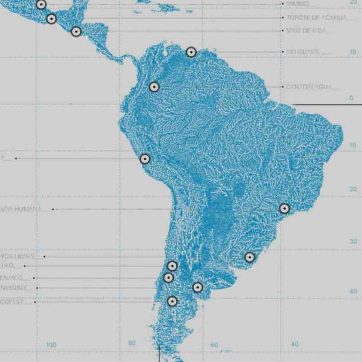
LA ESCUELA___
LA ESCUELA___ is a growing art platform that creates and strengthens translocal connections through collective learning experiences at the intersection of art and education. LA ESCUELA___ was founded by artist Miguel Braceli together with the international Siemens Stiftung and understands art as education and education as collective learning in public space. Its aim is to address the social, political and ecological challenges of specific places through artistic practices on site.
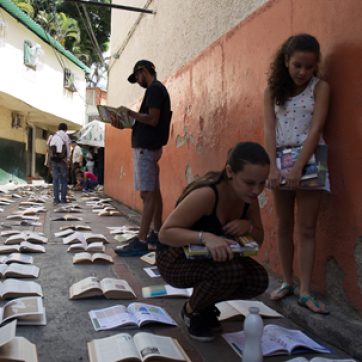
Stay in contact
Contact
Project Manager, LA ESCUELA___ at the Siemens Foundation
Joachim Gerstmeier


